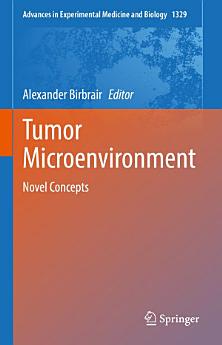Tumor Microenvironment: Novel Concepts
এই ইবুকখনৰ বিষয়ে
Taken alongside its companion volumes, Tumor Microenvironment: Novel Concepts covers the latest research on various aspects of the tumor microenvironment, as well as future directions. Useful for introducing the newer generation of researchers to the history of how scientists studied the tumor microenvironment as well as how this knowledge is currently applied for cancer treatments, it will be essential reading for advanced cell biology and cancer biology students, as well as researchers seeking an update on research on the tumor microenvironment.
লিখকৰ বিষয়ে
Alexander Birbrair received his bachelor’s biomedical degree from Santa Cruz State University in Brazil. He completed his PhD in Neuroscience, in the field of stem cell biology, at the Wake Forest School of Medicine under the mentorship of Osvaldo Delbono. Then, he joined as a postdoc in stem cell biology at Paul Frenette’s laboratory at Albert Einstein School of Medicine in New York. In 2016, he was appointed faculty at Federal University of Minas Gerais in Brazil, where he started his own lab. His laboratory is interested in understanding how the cellular components of different tissues function and control disease progression. His group explores the roles of specific cell populations in the tissue microenvironment by using state-of-the-art techniques. His research is funded by the Serrapilheira Institute, CNPq, CAPES, and FAPEMIG. In 2018, Alexander was elected affiliate member of the Brazilian Academy of Sciences (ABC), and, in 2019, he was elected member of the Global Young Academy (GYA). He is the Founding Editor and Editor-in-Chief of Current Tissue Microenvironment Reports, and Associate Editor of Molecular Biotechnology. Alexander also serves in the editorial board of several other international journals, including Stem Cell Reviews and Reports, Stem Cell Research, Stem Cells and Development, and Histology and Histopathology.








